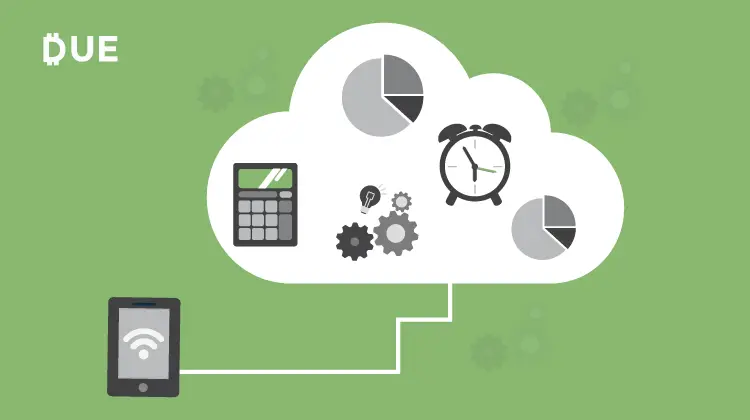Public cloud computing companies resources offer solo business owners, startups, and large enterprise businesses like Netflix to operate various apps, websites, and other content channels online. No matter where you are in your business journey, understanding how cloud computing works and where it may fit into your business may be vital to future success.
Not all clouds are created equal, and from large, well-known providers like Amazon and Microsoft all the way down the list to smaller upstarts, choosing a cloud provider could be a make or break decision. Cloud service industry revenues are growing by about 40 percent per year, and these are your biggest and best options to get started on the path to take your computing needs to the cloud.
Table of Contents
ToggleBringing the Cloud Down to Earth
Before we dive into the biggest cloud computing companies, it is important to understand what the cloud is and how it works. To start, let’s break down the most common misconceptions and confusions: “the cloud” is not literally above ground or anything resembling a weather event. The Cloud is simply an industry term for large, networked, scalable computer systems that live in data centers around the world.
In the old days, if you wanted to run a super powerful computer app, whether that “app” is a website or some other computer program. Cloud servers allow the same thing that traditional server allow. You can store data, run processes, serve websites, perform calculations, and even mine for Bitcoin. Whatever you can do with any computer program, the cloud can handle.
The Big Three Stand Alone
Three companies stand at the forefront of cloud computing for general purposes, and they are brands we all know well. Amazon Web Services (AWS), Microsoft, and Google are by far the biggest players in the cloud computing industry, according to Garnter’s 2017 annual report on cloud computing.
Not only are these three of the best-known companies in consumer computing in general, they are three of the longest-term players in the space. Amazon’s AWS is so widely used that when it doesn’t work right, the entire internet is in jeopardy.
Microsoft’s push into the cloud is supported by a huge, well-developed sales team that is already on the ground selling packages of computer software and support to small and large businesses alike. And Google. Well, they’re Google. They pretty much run the internet, right?
Challengers with Serious Cloud Chops
Just because three titans of the web control the bulk of cloud computing today does not mean it will stay that way. Just like in any other industry, these giants can expect serious competition. In this case, the biggest sources of competition today are Alibaba, IBM, and Oracle.
Alibaba is commonly known as the Chinese version of Amazon, so there is no surprises that they are making a push into an area of the web dominated by Amazon. IBM and Oracle are both equally familiar with power computing needs, running one of the most successful computing companies and database companies in the world, respectively. In fact, IBM earned nearly half of its 2016 revenue from “technology services and cloud platforms,” which is an indicator of just how important the cloud is becoming to tech providers.
Oracle is one of the biggest providers of business database solutions, competing with the likes of SAP to live on business servers around the world. But with an increase in networked and cloud based computing, Amazon and Microsoft are scooping up plenty of Larry Ellison’s customers.
These three entrants stand out as visionaries in the cloud computing industry but have a major uphill battle to successfully compete with Amazon, Microsoft, and Google.
Be Ready for New Competition
One of the most interesting places to look in 2018 and beyond is how niche and smaller cloud players will grow and compete for your cloud dollars. Notable entrants include CenturyLink, Virtustream, Rackspace, Fujitsu.
CentryLink has been gobbling up phone and internet companies for a while, with notable acquisitions over the last few years including Qwest Communications and a pending purchase of Level 3 Communications. Both Qwest and Level 3 give CenturyLink major data center and fiber networks that can bring powerful cloud assets to local edge severs using a combination of cloud and CDN platforms.
Fujitsu is most famous as a camera and film company, but like Kodak and others has found a need to pivot to survive. Fujitsu offers some unique cloud infrastructure and managed IT solutions that are attractive for mid-to-large businesses looking to outsource cloud systems management to an expert team.
Rackspace is a well-known website hosting provider, so a move into the cloud is a natural fit. One place where Rackspace is unique is that it offers a product with support for multiple clouds, including AWS and Microsoft.
With private, public, and hybrid cloud infrastructure options Virtustream is another interesting provider. This cloud-first provider has custom solutions for Federal needs, healthcare providers, and any global IT organization.
Get ready for more cloud computing companies
Getting movies and music streamed to our phones and computers is just scratching the surface of what is possible with cloud computing. Financial technologies ranging from digital wallets to lending platforms run on the cloud. Websites, applications, and more can be served from cloud resources. All of those features of connected internet of things (IoT) devices rely on the cloud.
The cloud is powerful, and it is not going anywhere. It will be exciting to see what these and other companies come up with next to help businesses of all sizes succeed in the cloud.















